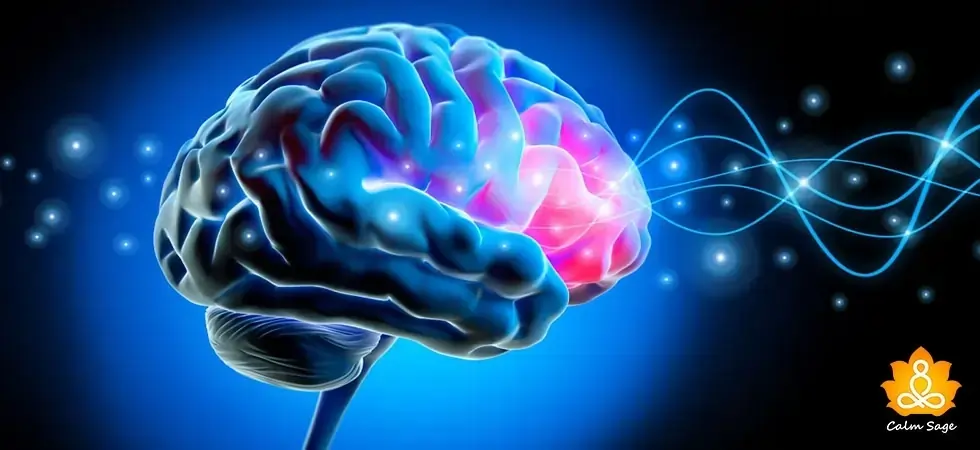Do Narcissists Cry a Lot? If Yes, Are The Tears Real?

When you see a loved one cry, it’s natural that you’d want to comfort them, soothe them, and make them feel cared for so that their tears would stop. I mean, that’s what I would do if I saw someone I cared for deeply shed a tear. But, how can you know when the tears your loved one sheds are real and when they aren’t? And especially when your loved one is a narcissist or shows narcissistic tendencies?
Narcissism is a term we have become almost accustomed to hearing these days, but what lies beneath this surface term of narcissism? Do narcissists allow themselves to show their vulnerable side? Are the emotions they express real or fake?
If you have a narcissistic loved one or suspect someone in your life with narcissistic personality disorder, then you must wonder if the emotions they present can be trusted. So, let’s explore the characteristics of a narcissistic personality and see how a narcissist expresses their emotions – real or not.
Narcissistic Personality Disorder – An Overview
Narcissistic personality disorder or NPD is a mental health condition, a personality disorder that can be described as having an exaggerated sense of self-importance, a need for constant admiration, and a lack of empathy towards others. NPD can make it difficult to maintain healthy relationships and well-being.
The symptoms of narcissistic personality disorder can include;
- A grandiose sense of self-importance
- A need for excessive admiration
- A need to be the center of attention
- A lack of empathy, and
- A constant belief that you are superior and unique to others
An example of narcissistic behavior in a relationship can be;
A narcissist might seek constant attention from their partner, belittle their partner, and lack an understanding of their partner’s feelings and emotions. A narcissistic partner would put their needs over their partner’s and can be emotionally manipulative. One of the ways narcissists might emotionally manipulate their partner is through crying.
Do Narcissists Cry a Lot?
It’s natural to wonder if narcissists – who are known for their self-centeredness – can cry. In simple terms, yes, they can cry. Just like any other emotion, crying is a natural response for narcissists too. But, here comes the more complicated question; are those emotions, those tears, real or manipulation?
Narcissists often wear a mask of grandiosity and are skilled at hiding their vulnerability, but like any other human, they are not emotionless. Narcissists do feel emotions such as anger, frustration, and sadness. However, their emotions are often entwined with self-centeredness and self-interest, making it harder for others around them to figure out genuine emotions and feelings from self-serving ones.
In any other case, we cry because we feel upset or sad, but we’ve also seen situations where someone cries to get their way and once that’s done, the tears stop too. When a narcissist cries, it could be real tears or it could be a manipulative tactic on their part.
When do Narcissists Cry?
Narcissists cry when they feel like their self-esteem is being threatened. This can happen during conflicts, disagreements, and even breakups. Their tears might be real in these situations, but their reactions are often driven by their need and urge to protect themselves – namely their self-esteem and self-image.
When you see a narcissist cry, it’s important to figure out if the tears are real or fake. Sometimes, the tears are a manipulative tactic to gain sympathy and attention. However, there could be moments when narcissists truly feel sad or stressed and want to express their emotions. In such situations, the tears could be real, but the motive behind them could be self-centered.
Narcissists can be triggered by various factors and situations that can make them cry. Some of them can include;
- Criticism of their behaviors
- Rejection from others
- Loss of admiration from others
- An act of manipulation
- A threat to their self-image, or
- Emotional dysregulation
Do Narcissists Feel Guilt or Remorse?
Narcissists rarely feel guilt or remorse for their actions. They might apologize for their actions, but it’s only on the surface and more often than not, an attempt to manipulate or control the situation. Narcissists are known for their lack of empathy, so this can make it challenging for them to understand and care about the pain and distress they might have caused.
When a narcissist feels guilty, they might feel so as a result of what their actions might have cost them. It’s rarely out of genuine guilt. Here’s an example that explains this situation the best;
A narcissistic person might have been rude to their colleague after a meeting and their colleague stops talking to them or spending time with them. A narcissistic person might not feel guilty for their actions but they might feel guilty for their reaction because it cost them a colleague for putting in work during meetings.
Narcissism vs. Lack of Empathy
Narcissism and lack of empathy are often seen together, but it isn’t the same. Narcissism is a disorder that can be described as having an inflated sense of self-image, whereas lack of empathy is a symptom of narcissistic personality disorder and means an inability to understand and share others’ emotions.
People with narcissistic behaviors believe that they are better and superior to others, have a constant need to be praised, and often show grandiose behavior. Their actions are often self-centered and they hardly care about the feelings and needs of others.
Empathy is the ability to understand and share others’ feelings and emotions. Lack of empathy means that you struggle to understand or care about others’ emotions and feelings. This can look a lot like indifference, an inability to join in other’s pain and joy, and showing a disregard for the impact of one’s actions on others.
How to Talk to Someone with Narcissistic Tendencies
If you have a narcissistic loved one, then here are ways you can talk to someone about their narcissistic behaviors;
1. Be Patient:
It’s not easy to deal with narcissistic behavior traits, so be patient with them. You need to allow your narcissistic loved one to express themselves and avoid interrupting them or getting defensive.
2. Set Healthy Boundaries
Set clear communication boundaries with your narcissistic loved one. Let them know what behaviors, actions, and words are unacceptable. You can set boundaries with them and move forward from there.
3. Use “I” Statements
When you’re talking to a narcissistic person, make sure you use “I” statements. These statements can prevent the conversation from going into defensiveness. Let them know what you feel; don’t make it all about them.
4. Stay Focused
Narcissists are great at diverting the attention of the conversation, so when you’re talking to a narcissist, stay focused. Addressing specific concerns as doing this is more likely to help you lead the conversation into productive discussions.
5. Keep Your Language Simple
Keep the language straightforward when you’re in a conversation with a narcissist. Avoid using any jargon or language that might confuse them. Speak in everyday and simple language that ensures clarity.
6. Offer Validation
Narcissists thrive on validation and praise so that’s what you should give them. When you deem it appropriate, acknowledge their qualities and praise them. This can help keep the conversation positive and encouraging.
7. Seek Professional Help
If the conversation with your narcissistic loved one is becoming toxic and difficult, then you can consider seeking professional help from a therapist. A professional can help you with effective communication strategies to improve your relationship with a narcissist.
Wrapping Up…
So, do narcissists cry? Or better yet, can they cry? And if yes, are their tears real? Well, narcissists are people – just like you and me – so it’s a given that they can cry and as far as their genuineness is concerned, the tears they shed might not always reflect their emotions and might have more self-centered motives.
Understanding the complicated nature of narcissism and how narcissism behavior can be reflected through emotions is important to figuring out how to navigate relationships with narcissists or people who have narcissistic tendencies.
I hope this blog helped you understand how to figure out if a narcissist’s tears are real or fake. Let me know what you think about the article in the comments section below.
Take Care!
Next Read:
Narcissistic Ghosting – What is it and how to deal with it?
Understanding Narcissistic Supply: What Is It, Types, And Much More…
What Does Narcissistic Discard Mean? | Reasons, Impact, And How To Heal




















